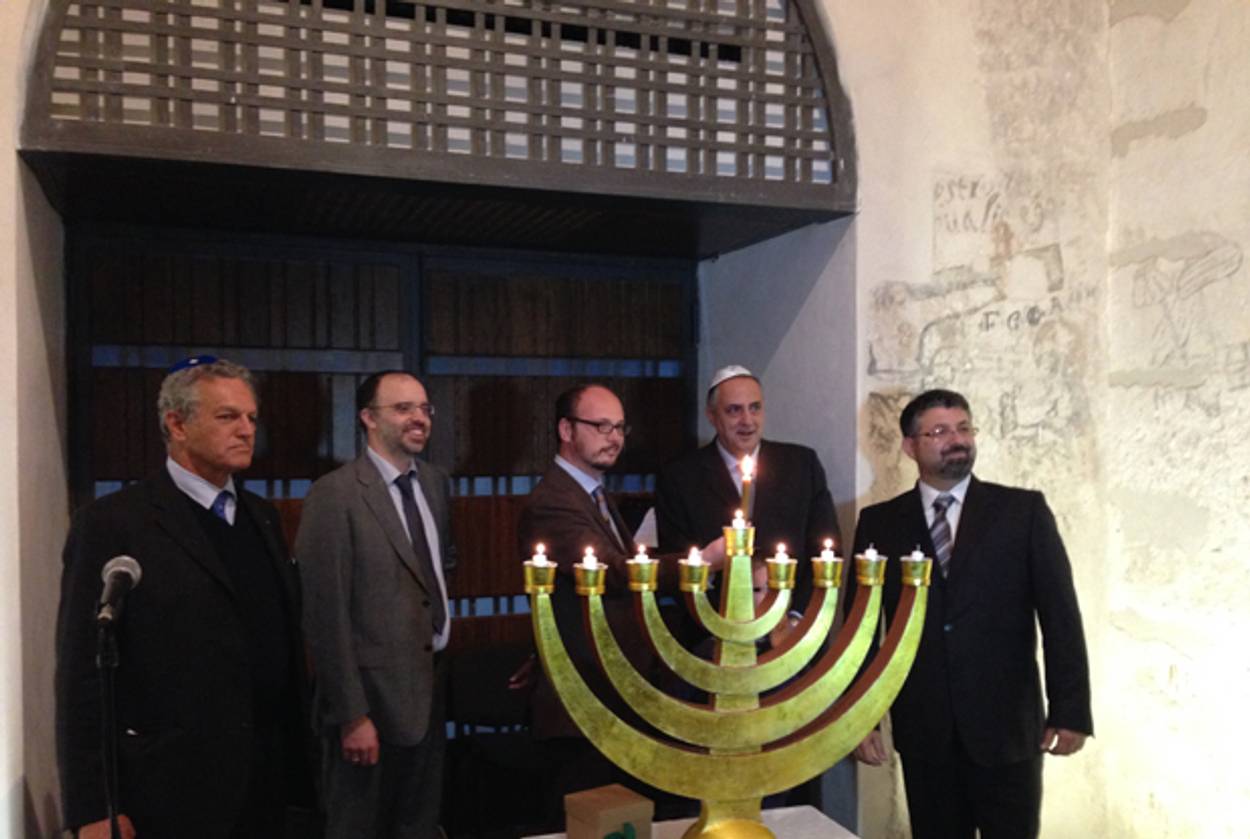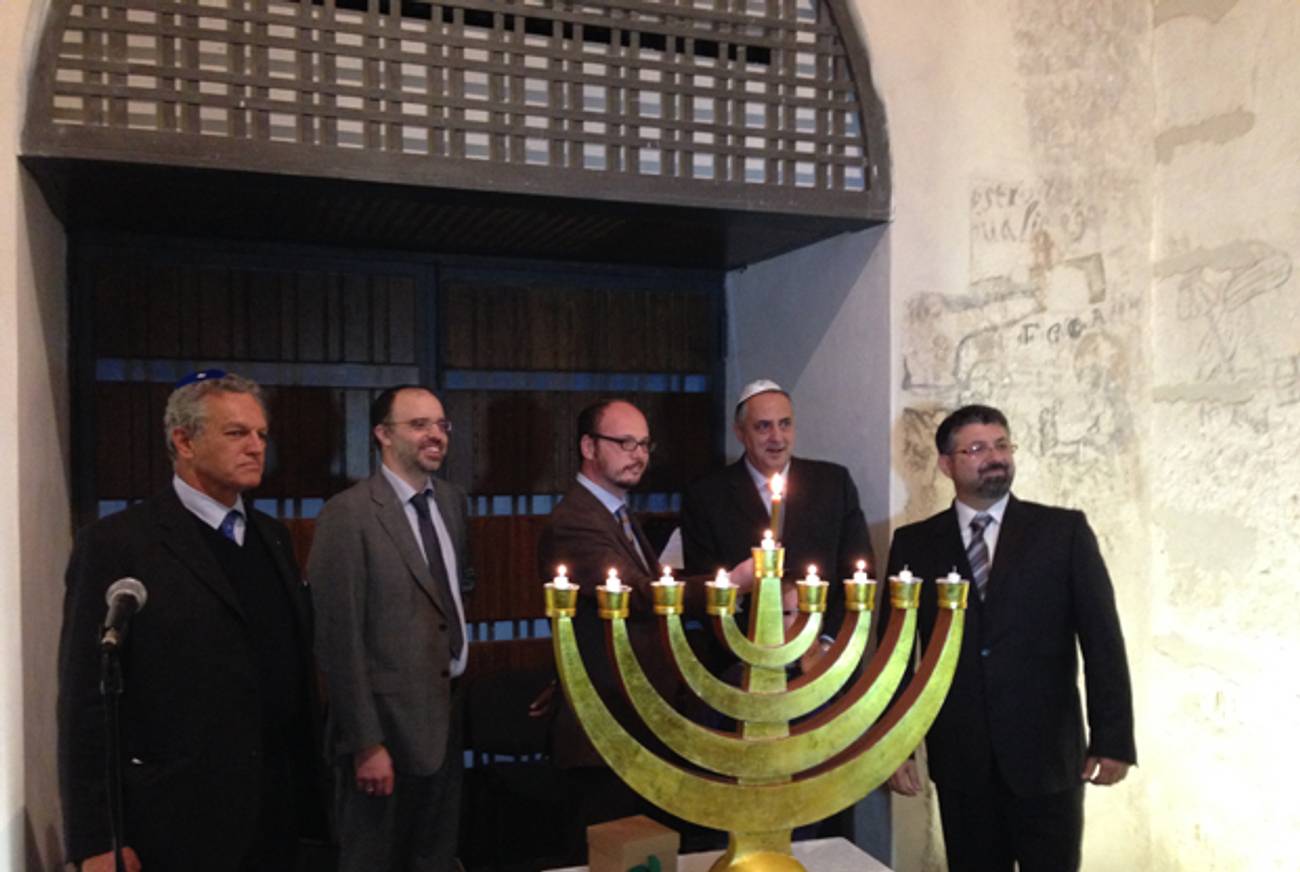Crypto-Jews Light Up Spanish Inquisition Prison
Happy Hanukkah from Palermo, Sicily




More than 100 descendants of Jews who converted to Catholicism during the Spanish Inquisition celebrated the eighth night of Hanukkah in Palermo, Sicily last night at an unlikely venue: the infamous Steri Palace prison, where Jews were routinely tortured from 1601 to 1782.
“Centuries after the Steri Palace Prison was used to try and extinguish the light of Israel, we came here to show that the flame of Judaism continues to burn,” said Michael Freund, chairman of Shavei Israel, the organization that planned the historic event. “For 200 years, Jews were tortured within the palace’s walls, and many were then burned at the stake by the Inquisition for secretly practicing Judaism.”
In attendance was Roberto La Galla, dean of the University of Palermo, and Mr. Roberto Jarach, vice president of the UCEI union of Italian Jewish community. Rabbi Pinchas Punturello, who is also affiliated with Shavei Israel, an organization which helps “lost” Jews reconnect with wider Jewry, led the service and lit the candles.
Jews have lived in Sicily for more than 2,000 years, and Jewish life flourished there for centuries. Jewish scholars and rabbis from Sicily made contributions to Jewish law, mathematics, poetry, and astronomy. In the 14th and 15th centuries, things took a turn for the worse and Sicilian Jews were forced to live in ghettos and were subject to increasingly cruel treatment.
In 1492, during the early years Spanish Inquisition, Isabella I of Castile and Ferdinand II of Aragon issued the Edict of Expulsion, forcing more than 37,000 Sicilian Jews who refused to convert to leave the country. Large numbers of forcibly converted Jews—conversos—remained, and they continued to suffer under the Inquisition. The Steri dungeon’s walls are etched with graffiti, an eerie reminder of the prisoners who languished there. Two of the carvings are written in Hebrew.
In October, Rabbi Punturello visited the Steri prison with more than 80 Crypto-Jews, as the descendants are known, from southern Italy and Sicily, for a three-day seminar. Moved by the significance of the prison, the rabbi contacted the mayor of Palermo and proposed a candle-lighting ceremony at the location, and the mayor readily agreed.
Rachel Silberstein is a writer living in New York.